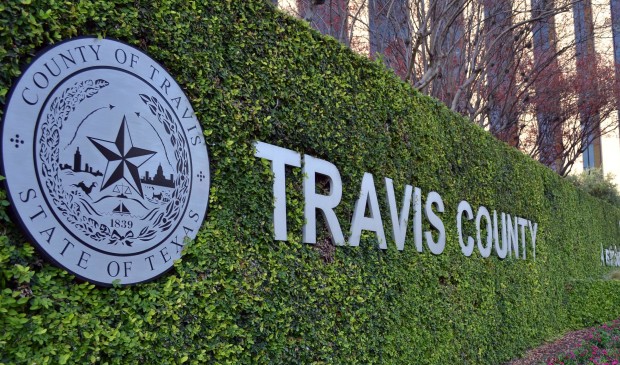County wants permanent supportive housing – but first, where’s the money?
Friday, February 26, 2021 by
Seth Smalley The Commissioners Court fielded statements from county executives Tuesday regarding a negotiation to fund hundreds of units of permanent supportive housing. Justice and Public Safety Executive Roger Jefferies spoke, as well as Health and Human Services Executive Sherri Fleming.
The proposal, Jefferies explained, was nothing new. In 2016, the Commissioners Court OK’d a similar collaboration between the county and several partners, including the city of Austin, Ending Community Homelessness Coalition, Central Health, Community Care Collaborative, Episcopal Health Foundation and Ascension Seton. Ultimately, though, the idea to create 250 units of permanent supportive housing was shot down over financing concerns.
“What was interesting about it was it was the unique financing situation,” Jefferies said. “It was called ‘pay-for-success,’ where social impact investors would provide money up front. Then, the funders – like the county and the city of Austin – would pay the investors back upon achievement of outcomes. It was a pretty complicated contracting structure. I think at the end of the negotiation of that the county decided it wasn’t in our best interest to go into that structure, so we pulled out, and eventually all the other funders also pulled out.”
Recently, the county was able to reconvene the previous funders toward the same goal, under a different financing scheme. The new scheme, as opposed to the pay-for-success model, is based on a more traditional fee-for-service model.
Fleming outlined the current state of the project, as well as a request to the Commissioners Court.
“As Roger stated, the city has invited partners back to the table to discuss potential projects for permanent supportive housing. We are at the phase of the project where partner interest is being explored,” she said.
Fleming hesitated to say much more than that due to the high probability that “the project would look considerably different than it looks today.”
She underscored HHS’s desire for the commissioners to pass the motion to “enter into a collaboration of local partners to develop and negotiate a proposal to fund units of permanent supportive housing.”
“I think staff’s interest today, though, is to have the court authorize us to participate in these discussions, because it was clear to staff at the conclusion of previous discussions that we need to come to you in order to get permission to have these discussions, should they come up again,” Fleming said.
While Commissioner Brigid Shea expressed strong approval of supportive housing in general, she took exception to discrepancies between the actual language of the motion and Fleming’s description of HHS’s need.
“I was supportive of trying to have the pay-for-success model work – it was innovative, I think, but ultimately too complicated because of the contracting provisions,” Shea said. “But I am a little bit concerned about the posting language because this looks like it is directing staff to negotiate a proposal to fund … I’m not willing to have our staff enter into a negotiation and proposal to fund without knowing what kind of costs we’re talking about and where the money might come from.”
Fleming reiterated that no agreement on funding levels for the project has been crafted or substantially discussed. That was because HHS did not have the commissioners’ permission to participate.
According to Fleming, the proposal would “only authorize staff to participate in partner’s discussions, and bring to the (Commissioners) Court substantial progress in those discussions, including requests for the county to participate financially.”
Shea reiterated her previous concerns, as well as her support for the project. “I’m a little concerned the language says differently – I’d like to have slightly different language when we’re ready to move forward with this.”
Shea suggested changing the language to “develop options for the court to consider regarding permanent supportive housing,” as opposed to the current language that states HHS would be able to develop and negotiate a proposal to fund units of permanent supportive housing.
“So it’s clear we’re developing options, but we’re not committing to something, because that’s the rub. We don’t know what it will cost and we don’t know the source of the funds,” Shea said.
The Commissioners Court passed a motion to amend the language and then motioned to approve.
The Austin Monitor’s work is made possible by donations from the community. Though our reporting covers donors from time to time, we are careful to keep business and editorial efforts separate while maintaining transparency. A complete list of donors is available here, and our code of ethics is explained here.
You're a community leader
And we’re honored you look to us for serious, in-depth news. You know a strong community needs local and dedicated watchdog reporting. We’re here for you and that won’t change. Now will you take the powerful next step and support our nonprofit news organization?










